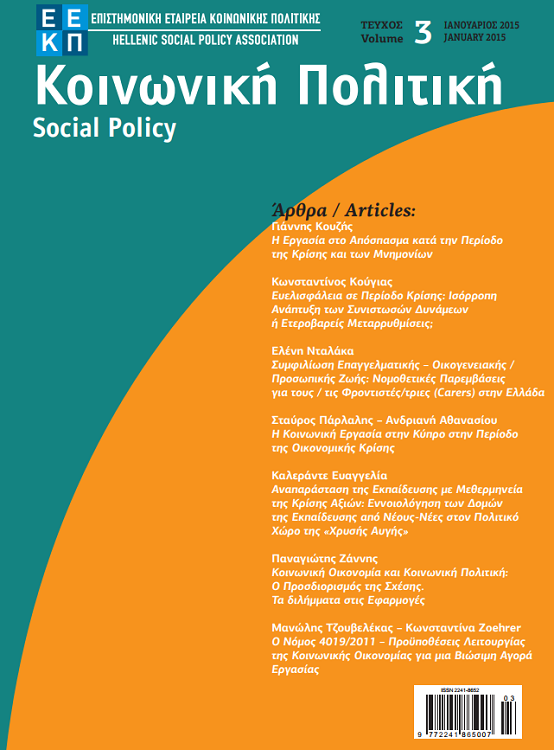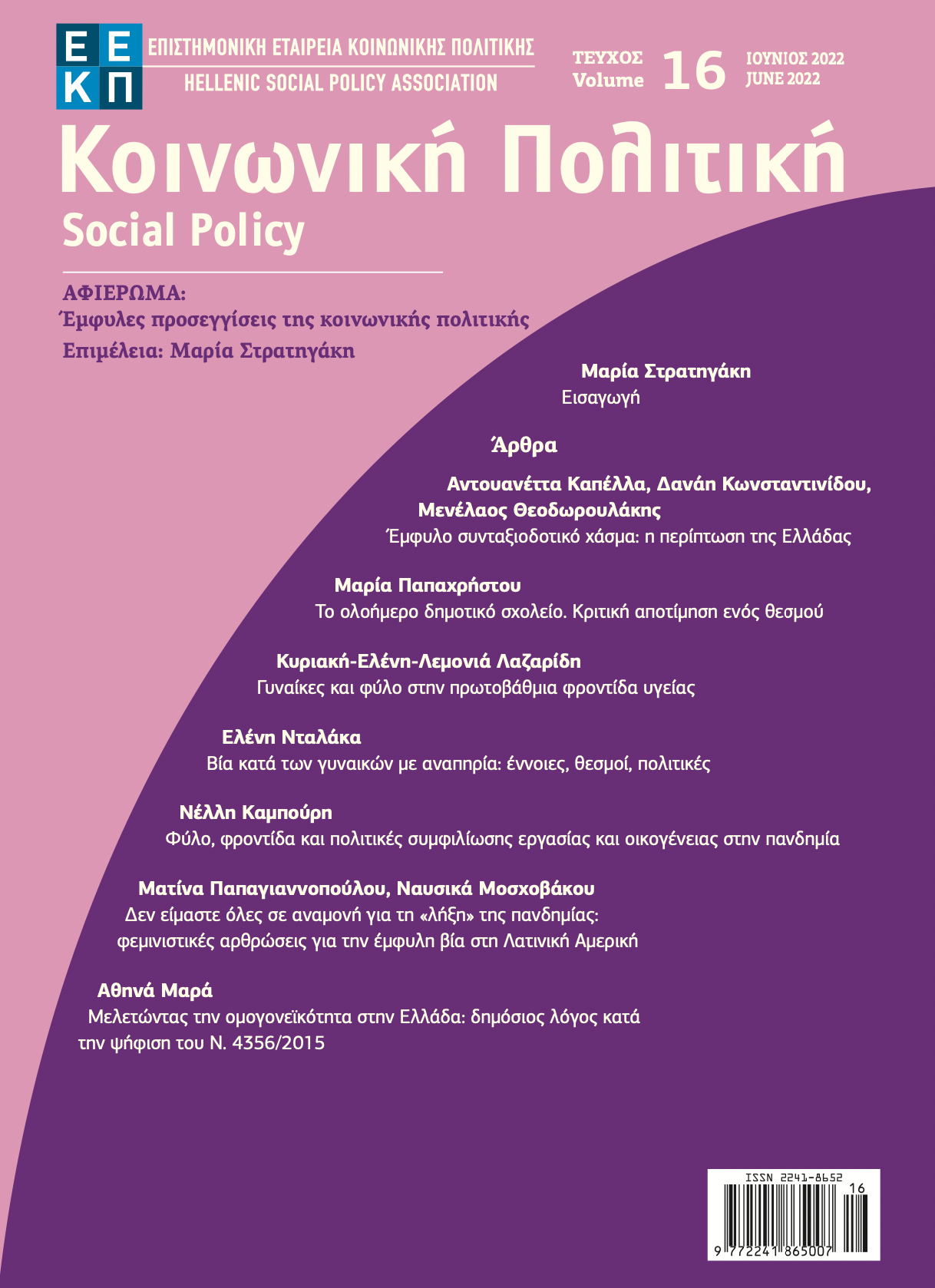Συμφιλίωση Επαγγελματικής / Οικογενειακής / Προσωπικής Ζωής: Νομοθετικές Παρεμβάσεις για τους / τις Φροντιστές / τριες (Carers) στην Ελλάδα
Abstract
Work-life balance constitutes one of the key elements for the implementation of gender equality policies. Besides working parents, carers in other
-full or part time- employment (i.e. people who regularly look after ill, disabled or elderly relatives/friends aged 15 years or more and in need of care), have to cope with particular difficulties when responding to the needs of both their professional and family environments. This article examines the Greek State’s approach, as it is depicted in relevant legislation, to the issue, having established that this particular issue is directly and intricately linked with multi-dimensional and crucial challenges (such as establishing “social time” or redefining terms like employer, employee etc). It also provides a concise presentation of how the European Union as well as some of its Member States, deal with this issue, and concludes with suggestions that lead to integrated interventions aiming to promote the work-life balance of carers.
Article Details
- How to Cite
-
Νταλάκα Ε. (2017). Συμφιλίωση Επαγγελματικής / Οικογενειακής / Προσωπικής Ζωής: Νομοθετικές Παρεμβάσεις για τους / τις Φροντιστές / τριες (Carers) στην Ελλάδα. Social Policy, 3, 49–73. https://doi.org/10.12681/sp.10589
- Issue
- Vol. 3 (2015)
- Section
- Articles

This work is licensed under a Creative Commons Attribution 4.0 International License.
Authors who publish with this journal agree to the following terms:
Authors retain copyright and grant the journal right of first publication with the work simultaneously licensed under a Creative Commons Attribution Non-Commercial License that allows others to share the work with an acknowledgement of the work's authorship and initial publication in this journal.
Authors are able to enter into separate, additional contractual arrangements for the non-exclusive distribution of the journal's published version of the work (e.g. post it to an institutional repository or publish it in a book), with an acknowledgement of its initial publication in this journal.
Authors are permitted and encouraged to post their work online (preferably in institutional repositories or on their website) prior to and during the submission process, as it can lead to productive exchanges, as well as earlier and greater citation of published work.




